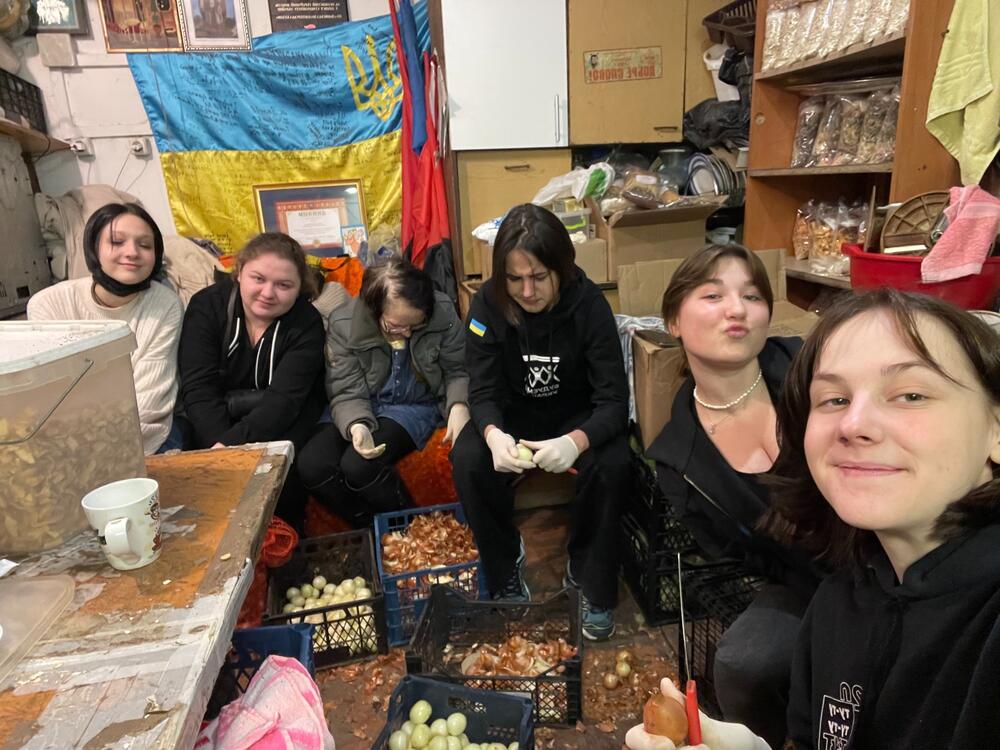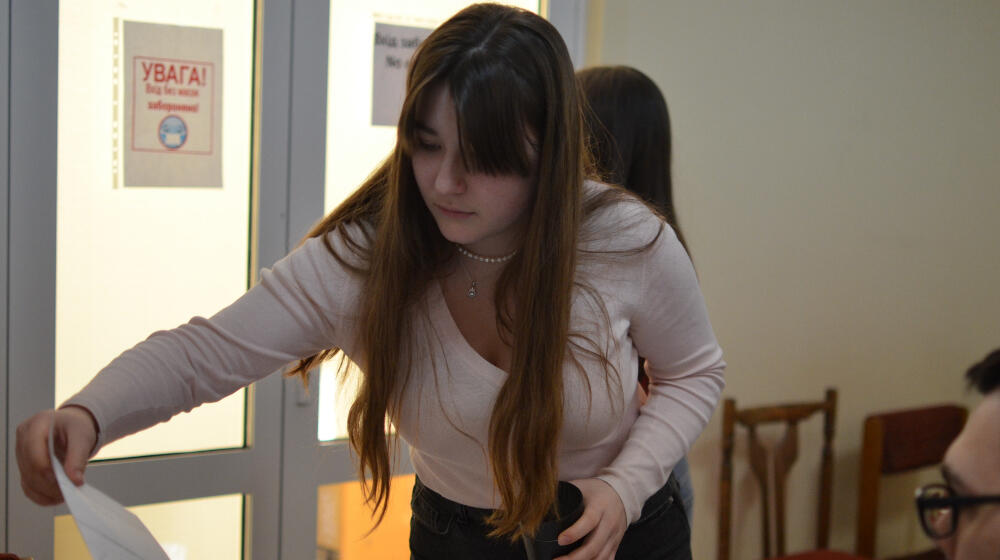LVIV, Ukraine – On 24 February, 11th-grader Viktoria Kravets had a typical day planned: classes at top secondary school Gymnasium Prestige then meeting up with a friend after school. The night before, she had forgotten to set her alarm clock and woke up earlier than usual. “I immediately saw a dozen notifications and thought that I was still asleep,” said Kravets, 17. “At 5 a.m., Ukranian cities were bombed. I lay in bed and couldn't understand what was going on. Our school lessons were suspended, and I sat at home flipping through the news with fear.”
As the war grinds into its second month, more than 10 million people from Ukraine have either fled to other countries or are displaced internally, including some 200,000 in this western city of some 721,000 and UNESCO World Heritage site near the border with Poland. It’s also where Vika was born.
She has set aside textbooks for now as a volunteer registering refugees with Tvory Volunteering Centre, which works with Molodvizh, a peer-to-peer youth organization and UNFPA partner. “I am one of thousands of volunteers who are now helping our country,” she said. “The first days I worked 14 - 16 hours – sometimes more. Now my shift usually lasts 12 hours with breaks. I deal with the settlement of refugees and coordinate their registration. Once school resumes, I will volunteer for at least six hours.”
People fleeing war-affected areas in central and eastern Ukraine within the country are registered where they plan on staying so that local authorities can assist with food, shelter and other necessities. Men between the ages of 18 and 60 have to be registered for security reasons.
“It has been a little nerve-wracking and stressful. And also very unpredictable,” she said. “I wake up, have breakfast and go volunteering. I come across different people, different stories, creating a new unique history of our country. I never thought I would be involved in this kind of activity – helping hundreds of people a day looking for transport to the border or distracting them from horrible thoughts.”

“All talk is about one thing”
When her day is done, she goes home to her parents and 14-year-old brother. Because of the ever present dangers, she has to walk home faster. She sees her friends less often. “Of course, I would like to talk to my friends about familiar topics such as love, quarrels with parents, school, what university to enter,” she said. “But all talk is about one thing, the war – all the latest news and TikToks.”
About a third of her friends and relatives have left Ukraine. But she won’t: “I am needed here. I love people, volunteering and this country. I'm at home, and I don't want to give it to anyone.” She stopped listening to music for the first two weeks – it seemed inappropriate to do normal things during war. Then she decided entertainment – even watching TV – was necessary for her mental health. She’s also preparing for state exams required by universities – and an uncertain near future. “I am afraid of two things: Russians bombing my city and if I will be forced to go abroad. Also the worst is to lose loved ones.”
A brief time has felt longer. “I have a completely different vision of the world and people in general. I feel like I've grown a few years in 26* days. I became more stress-resistant, more resilient, and got better at teamwork. I have developed better coordination skills and quicker problem-solving skills. And I became less vulnerable to negativity.”
That attitude has allowed her to be optimistic: “I think we will rebuild the country. Ukraine will become more progressive and cohesive than it was before.”
And that hope allows for the only other thing besides war she and her friends talk about: “Dreams of what we’ll do when all this ends.”
*Interview was conducted on 22 March.


